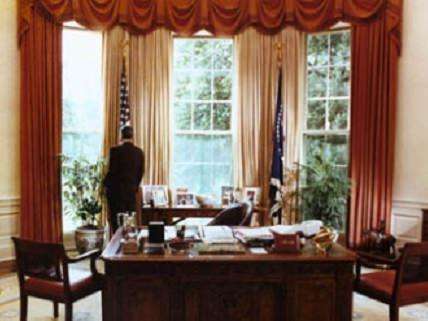All the President's Apparatchiks: Barack Obama's Failed Foreign Policy
President isolated on foreign policy by political advisors, according to a new book by a former State Dept advisor

Barack Obama is a "dithering" president whose foreign policy is formulated by political advisors trying to "spare the president the risks" that come with American leadership, basing it therefore largely on partisan concerns, according to a new book by a former State Department advisor now dean of the John Hopkins School of Advanced International studies. Vali Nasr's book, The Dispensable Nation: American Foreign Policy in Retreat, is scheduled to be released in April but has been excerpted by Foreign Policy, revealing just how political foreign policy and military decision-making is in the White House. A portion:
Not only did that not happen [getting things right in the Middle East, as Obama promised on the campaign trail], but the president had a truly disturbing habit of funneling major foreign-policy decisions through a small cabal of relatively inexperienced White House advisors whose turf was strictly politics. Their primary concern was how any action in Afghanistan or the Middle East would play on the nightly news, or which talking point it would give the Republicans. The Obama administration's reputation for competence on foreign policy has less to do with its accomplishments in Afghanistan or the Middle East than with how U.S. actions in that region have been reshaped to accommodate partisan political concerns.
By September 2012, when violent anti-American protests swept the Muslim world, claiming the lives of four members of the U.S. diplomatic mission in Libya and dozens of demonstrators, it became clear that we had gotten the broader Middle East badly wrong.
The American people are tired of war -- rightly so -- and they welcome talk of leaving the region. The president has marketed the U.S. exit from Afghanistan as a foreign-policy coup, one that will not only unburden America from the region's problems but also give the country the freedom it needs to pursue other, more pressing national security concerns.
This is an illusion. Ending the wars in Iraq and Afghanistan, not to mention the broader, ill-defined "war on terror," is a very good idea, provided it is done properly and without damage to U.S. interests or the region's stability. But we should not kid ourselves that the rhetoric of departure is anything more than rhetoric; the United States is taking home its troops and winding down diplomatic and economic engagement -- but leaving behind its Predators and Special Forces. We should not expect that the region will look more kindly on drone attacks and secret raids than it did on invasion and occupation.
Yet this is exactly the path that the White House has laid out.
Nasr presents a narrative of bureaucratic incompetence and infighting stymieing efforts in Afghanistan also seen in Rajiv Chandrasekaran's Afghan war tome, Little America. Nasr also shows how the same toxic bureaucratic culture affects drone policy, timely considering how much of that policy, as presented to the public, boils down to "trust us." The White House just this week agreed to release, to the Senate Intelligence Committee, the actual memos justifying the president's power to kill terror suspects.
Read the rest of the Dispensable Nation excerpt here.


Show Comments (102)